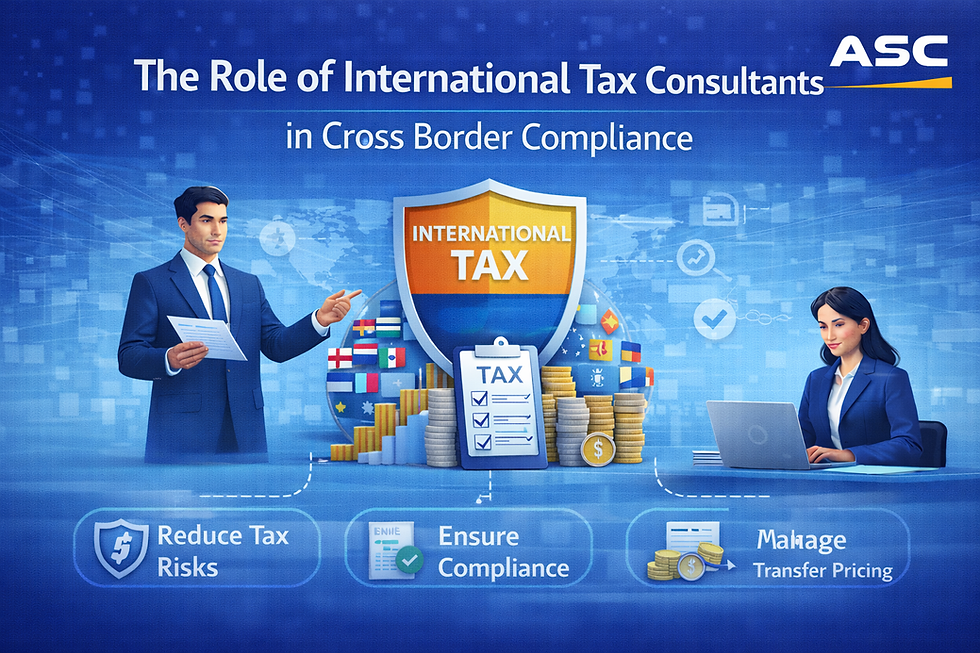Understanding the SVB Customs: Ensuring Fair Trade via Scrutiny
- ASC Group
- Feb 20, 2024
- 2 min read
In the intricate world of international trade, ensuring accurate valuation of imported goods is crucial for fair customs duties and a level playing field. Enter the Special Valuation Branch (SVB), a specialized unit within the Indian Customs department. Acting as a vigilant watchdog, the SVB plays a vital role in scrutinizing transactions involving related parties – importers and foreign suppliers with close ties like joint ventures, partnerships, or subsidiaries.
Why is SVB Important?
Imagine two companies under the same parent organization importing identical goods. One declares a higher price, leading to higher customs duties, while the other, due to the related party connection, might undervalue the goods to pay less. This not only creates an unfair advantage for the latter but also undermines the government's rightful revenue. Here's where the SVB customs steps in.
SVB's Scrutiny Lens:
Identifying Related Parties: The SVB defines these parties according to specific criteria, ensuring no loopholes are exploited.
Examining Transaction Terms: SVB officials analyze invoices, contracts, and other documents to assess whether the declared price reflects the true market value. This involves comparing prices with independent transactions and using various valuation methods.
Adjusting Valuations: If discrepancies are found, the SVB has the authority to adjust the declared price to ensure it aligns with fair market value. This protects both the government and unrelated importers from unfair competition.
Beyond Related Parties:
The SVB's scope extends beyond simply scrutinizing related party transactions. It also handles complex situations where adjustments to declared values might be necessary, even for unrelated parties. This could involve:
Transfer pricing adjustments: Assessing if additional payments between importer and supplier (beyond the declared price) affect the true value of the goods.
Cost-plus valuation: Verifying if the declared price includes all allowable costs incurred by the supplier.
Transaction adjustments: Checking for irregularities like royalties or commissions that might influence the price.
Navigating the SVB:
For importers engaging in related party transactions, understanding and complying with SVB regulations is crucial. This includes:
Accurate Declaration: Disclosing the related party relationship and providing transparent documentation.
Proper Valuation: Demonstrating that the declared price reflects the true market value.
Cooperation with SVB Investigations: Providing additional information and clarifications if requested.
The Bigger Picture:
The SVB plays a vital role in maintaining a fair and transparent trade environment. Its meticulous scrutiny not only prevents revenue loss for the government but also protects legitimate businesses from unfair competition by ensuring accurate customs valuations. In essence, the SVB acts as a guardian of fair trade, promoting a healthy and thriving international trade ecosystem.



Comments